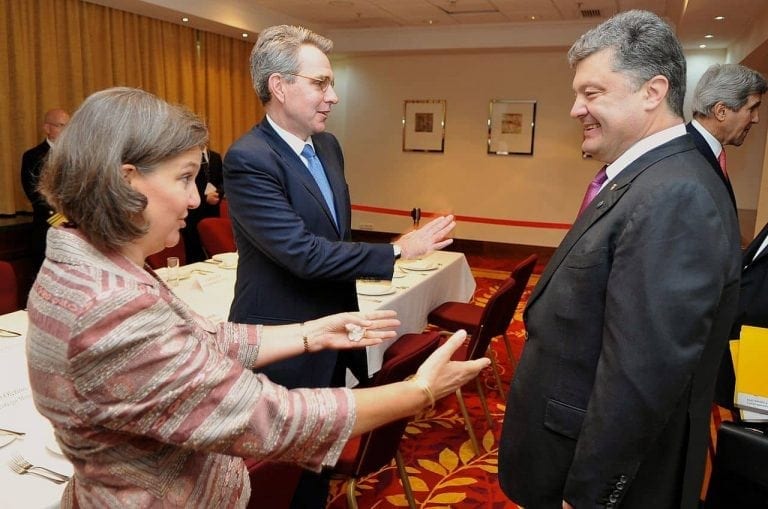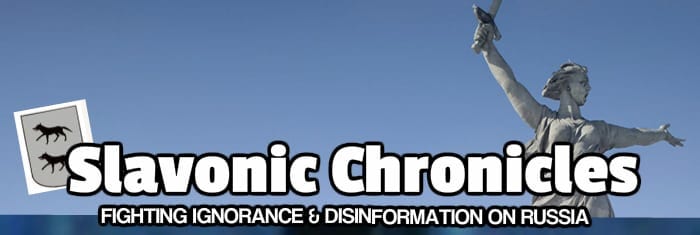A dispatch from the Center for Syncretic Studies and Fort Russ, fraternal sites.
Materials prepared and edited by Jafe Arnoldski
An Interview with Czech Communist Ideologist Josef Skala
 By Dr. Eduard Popov and Alexander Gegalchiy – translated by Jafe Arnold
By Dr. Eduard Popov and Alexander Gegalchiy – translated by Jafe Arnold
This material was originally published on the Center for Syncretic Studies website, and also on Fort Russ, both fraternal sites sharing our values and perspectives for world peace and social justice.
In August 2016, the Center for Syncretic Studies had the honor to publish an exclusive interview with the Communist Party of Bohemia and Moravia’s deputy chairman for ideology and communications, Dr. Josef Skala, produced by the Center’s esteemed Russian colleagues, Dr. Eduard Popov (Fort Russ guest analyst, Europe Center for Public and Information Cooperation) and Alexander Gegalchiy (International Russian Award Foundation). We are pleased to continue this fruitful intellectual exchange with the following, latest interview with Dr. Skala conducted in early January 2018. This interview touches on a number of pressing topics ranging from the challenges facing the “post-socialist” left to “populism”, NATO expansion, and the possibility of a third Maidan in Ukraine. As such, it should serve as a case study in the transformation of the left in the 21st century in relation to geopolitical processes. – Jafe Arnold

Eduard Popov: Dr. Skala, how do you see left socialist and communist thought developing? Is any creative potential being demonstrated, i.e., anything “new”, or is the left clinging to unchanged positions?
Josef Skala: To this day the left remains the victim of the so-called “new” thinking invented by Gorbachev and his associates. This, of course, is a serious distortion of left thought. But many modern theoreticians are still under the pressure of the stereotypes propagated by this “new” thinking. After all, this thought was nothing new! On the contrary, it was a program for returning to the distant past. Nevertheless, new philosophical talents are emerging which have a good grasp of what happened with “Catastroika” and are advocating fresh ideas. In the Czech Republic, we have a group of young theoreticians capable of not only quite profoundly analyzing the tendencies of the development of modern capitalism, but also evaluating the dead ends and traps towards which capitalism is heading which Western elites are incapable of doing anything to avoid.
For example, there is the debt trap. There is the trap of chaotic migration from the Third World to Europe. And there is the phenomenon of what used to be profit for capital, a driving process, that is now rent, parasitic rent. We recently released a book by the young economist Ilona Shveglikova titled Capitalism, Socialism, and the Future. This book describes the processes occurring in the depths of capitalism. Moreover, the author ponders over what this implies for the practice of left forces and how they can implement their programs in view of prevailing military and economic conditions. This is a very interesting topic which requires special discussion. Most important, however, is the fact that there are new leaders and that theory is being developed.
Popov: How might left thought be popular-democratic, and in what ways?
Skala: The contemporary ruling elites treat democracy, so to say, worse and worse. This is natural, as global capital has no need for real democracy. Global capital is even seizing for itself a number of powers which until now were left in the hands of states. Therefore, questions of democracy, democratic values, and democratic demands are left without a speaker. The liberal parties are abandoning the resolution of this problem. They are de facto becoming servants of global capital. Even the socialists have capitulated. [This is an old phenomenon going back many decades, perhaps over a century, and dating back at least to the First World War.—Eds.]
Popov: So does it turn out that the only real democrats today are the left?
Skala: Really only the real left, or you could say even the radical left is defending the interests of the people and democratic interests. Meanwhile, a growing number of populist parties are intercepting traditional political platforms from the left. They are occupying the positions being left by the liberals.
Popov: Left thought is usually associated with the defense of workers’ socio-economic rights and oppressed peoples. But what can the modern left in Europe offer to defend traditional culture and morality?
Skala: Traditional culture and morality are being squeezed by some aggressive forces and trends. On the one hand, there is Americanization, which is squeezing out European culture and art. On the other hand, there is the chaotic wave of Islamic migration that is planting its own cultural models and stereotypes in a number of European countries. It is well known that lists of so-called “no go zones” have appeared in France and Germany, where not even those born there risk going. Centers of aggressive fundamentalism are being established there which are hostile to Europe’s cultural values. This is an extremely dangerous phenomenon. Left forces, frankly speaking, have not found adequate answers to these issues. Many on the left have decided that we must be internationalists in some weird, distorted way. Angela Merkel has altogether got the point of saying “welcome!”
But this does not help the Third World as a whole, which is a victim of imperialism, nor does this defend the elementary interests of those underprivileged, oppressed layers in Europe. We should not go chaotically running down this direction. What is needed is finding a balanced approach, and this task is far from resolved in Europe. Let’s take the interesting example of Germany. The fact that the Alternative for Germany movement has won striking results in recent elections is related to the fact that the well-known left parties have all the while not found any adequate solutions or approaches to voters.

Victoria Nuland —Washington's neocon hand in Eastern Europe's coups— greeting Porochenko and other neofascists in Kiev.
Alexander Gegalchiy: Do you mean to say that Alternative for Germany has deprived the traditional left parties of their votes and followers?
Skala: Yes, our friends who always had strong positions in Germany, have lost at this stage.
Gegalchiy: How do you assess the Communist Party of Bohemia and Moravia’s participation in the last elections to the Czech parliament? What are the strengths and weaknesses of this run?
Skala: For us, the last elections to parliament can in no way be called a success. We obtained the worst results since 1921! Our Communist Party never had a result of less than 10%. Prior to this, the weakest result ever was 10.6% in 1929. Of course, this means that all of our political work deserves a low evaluation. This result was compounded for us by the fact that around 60% of votes in the elections were made up by so-called protest votes. Those parties that have been in power stably since 1990 have lost, you could say, everything. Some of them struggled to break the 5% threshold allowing them to enter parliament. The former leaders of the Civil Democratic Party and Social Democratic Party won even less than us communists. The Social Democrats slipped from being the ruling party to claiming only 7.3%!
What are the reasons for this? People who have been obscenely mistreated by capitalism have lost protection and hope in left forces for bettering their standing. This is a very serious warning for us. Communists should first and foremost think about how to pursue policies henceforth and what changes should be introduced into the content and methods of our work.
The wave of coups in the socialist world in the late ’80’s and early ’90’s led to a faith in sweet illusions. This was a time of illusionists who promised that in a couple of years' time we would live like they do in Switzerland, and so on. This time has irreversibly passed. Today, the masses of Eastern Europe are plagued by disappointment and fear of the future. And these voters remain important to parties. But the 1990’s, when we fought just to survive and were under constant threat of being banned, have already passed. Alas, some left parties remain frozen in those times, in the ’90’s. We need to quickly change our politics in a way so that we can once again become the speakers of the critical sentiments of the masses – so that people can once again put hope for change and the better with us, not populists.
Gegalchiy: So have populists become the main competitors for communist parties? And now communists must either become populists or find completely new approaches to reforming society and addressing voters’ needs?
Skala: Right. But I would add one more remark. The leaders of the left, including communists, are engaged in a kind of self-justification. They say: “But we cannot be like those populists!” Thus, they wash their hands and say we shouldn’t touch such slippery topics. But we need just the opposite – a proactive approach. We should seize the initiative and pursue the most radical politics, and propose more interesting and attractive responses to the most pressing issues of our time if we are not to become victims of populist demagoguery.
Popov: How dangerous for Europe’s future is the militarization of the continent, i.e., the deployment of American nuclear weapons in a number of European countries, the deployment of new US military units, and the establishment of additional NATO units near Russia’s borders?
Skala: This is a very dangerous trend. Of course, we in the Czech Republic should actively fight against those forces supporting such state policy. We should clarify that we have nothing to gain from, for example, deploying Czech forces near Russia’s borders in the Baltic states. For us this means only costs and enormous risk. It is clear that if we reach the point of some kind of conflict, then Prague would be closer to it than Berlin, Paris, or London.
What’s more, all of this is due to the European Union’s economic sanctions and Russia’s counter-sanctions, which in no way help the Czech economy or improve our socio-economic situation. The campaign being waged against everything Russian in the spirit of the height of the cold War is absolutely insane. It is reaching the point that, for example, anyone who criticizes the European Union is declared an agent of the Kremlin or FSB, and so on. This is all nonsense, of course, and no one has any evidence for such accusations. But in this atmosphere of the New Cold War, the left forces that don’t support such policies become victims. They are ostracized, scandalized, made into enemies, and attempts are made to exclude them from the political life of their countries, from governance. In the Czech Republic, for example, a list has been published of 40 sites accused of being the “Kremlin’s hand.”
Gegalchiy: Is your communist newspaper, Haló noviny, also on the list?
Skala: No, but it is treated as if needless to say it was. This is ridiculous. We communists consider modern Russia to be a very important factor for balance in the world. On the other hand, we are also critical of a number of phenomena in Russia – for example, the big “social scissors.” We openly criticize these phenomena. The dissidents of the 21st century are not people paid by foreign embassies.
Popov: Could Ukraine fulfill the role of a training ground for a clash between NATO and Russia? How can the situation in Ukraine be resolved?
Skala: Today I read an interesting article by our, or rather Slovak dissident in the best sense of the word, who said that if there will be a third Maidan – towards which it indeed looks like things are heading – then it would be in one way or another a protest against American policy. Today, the people who are crying out are the same “volunteers” who overthrew Yanukovych – the very same group. Objectively, they are protesting against corruption, against the low standards of living endured by the majority of Ukrainians. Even compared to how things were a few years ago, living standards have drastically deteriorated. And this process is ongoing.
The paradox is that the people talking about this in the name of the millions of suffering Ukrainians are those who until only recently served Poroshenko, Yarosh, and other Russophobes responsible for turning the country into a launchpad for squeezing Russia. What a crazy household…
I fear that there have not yet formed any representative or influential forces in Ukraine which could fight back against this nationalist demagogy and pro-American policies. Thus, the situation resembles what happened in the 1930’s in Germany. And there is the threat that the worse the situation becomes, the sooner people will once again become victims of those Nazis who associate themselves with Bandera, the Hitlerites, and fascist symbols and ideology. This is a very dangerous trajectory.
Copyright © Center for Syncretic Studies 2018 – All Rights Reserved. No part of this website may be reproduced for commercial purposes without expressed consent of the author. Contact our Press Center to inquire. For non commercial purposes: Back-links and complete reproductions are hereby permitted with author’s name and CSS website name appearing clearly on the page where the reproduced material is published. Quotes and snippets are permissible insofar as they do not alter the meaning of the original work, as determined by the work’s original author.
 JAFE ARNOLD, Assistant Editor & Correspondent, Eastern Europe • Jafe Arnold is an American expat doing his Masters at the University of Amsterdam, with a Bachelors in European Culture from the University of Wroclaw, Poland. Formerly an activist on the American left, he is currently a research fellow for the Center for Syncretic Studies, a translator and editor at Fort Russ, and the founding editor-in-chief of Eurasianist Internet Archive. Besides translating unique analyses from Russian and Polish for English-language audiences, Arnold’s interests and expertise include geopolitical processes and ideological developments in Eastern Europe and the post-Soviet space.
JAFE ARNOLD, Assistant Editor & Correspondent, Eastern Europe • Jafe Arnold is an American expat doing his Masters at the University of Amsterdam, with a Bachelors in European Culture from the University of Wroclaw, Poland. Formerly an activist on the American left, he is currently a research fellow for the Center for Syncretic Studies, a translator and editor at Fort Russ, and the founding editor-in-chief of Eurasianist Internet Archive. Besides translating unique analyses from Russian and Polish for English-language audiences, Arnold’s interests and expertise include geopolitical processes and ideological developments in Eastern Europe and the post-Soviet space. 




